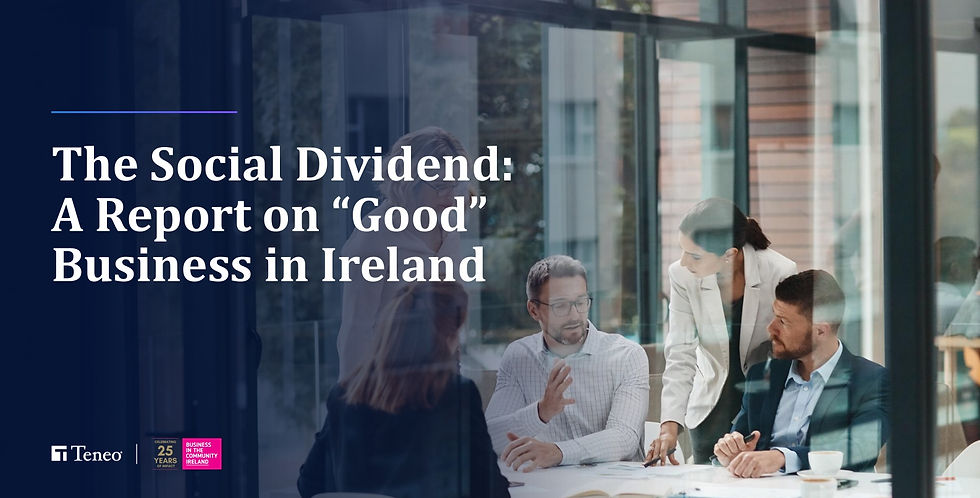The American Eagle 'Great Genes' Controversy: When Outrage Becomes a PR Strategy
- Marielle Onana
- Aug 8
- 4 min read
Updated: Aug 21

Ever heard of the term 'Outrage Economy'? It’s the idea that controversy can be a deliberate strategy to capture attention, and money. In 2025, brands face a tough choice: play it safe and risk fading into the background, or stir the pot and risk backlash. The gamble? You might get canceled, but you might also gain enormous visibility, and even profit from the conversation that follows.
The Campaign & The Controversy
For context, American Eagle ran this campaign starring Sydney Sweeney, using the pun “Great Genes” (Sydney Sweeney Has Great Jeans) to sell their denim. Sounds harmless, right? But the problem was that the phrase touched a nerve with some viewers who felt it glossed over deeper issues around race, identity, and cultural sensitivity.
Some people pointed out that the phrase “great genes” echoes a problematic history tied to eugenics and ideas about genetic superiority. Critics, including many from communities sensitive to these associations, felt the campaign unintentionally evoked symbols of racial exclusion and white supremacy: why is it that a blonde, blue-eyed model boasting “great genes” is suddenly seen as acceptable? Other dismissed the backlash as overblown.
Whether you see it as overblown or justified, the uproar was real, and it was loud. The fact that this campaign sparked such widespread debate is proof that cultural moments, controversy, and buzz have real commercial power.
💰The Outrage Economy: When Backlash Becomes Business
Studies on Marketing virality suggest that outrage (or any strong emotion, really) can be a marketer’s secret weapon. Emotions like joy and anger drive people to share content more, especially on social platforms that thrive on social interaction like Facebook and TikTok. The catch? Each platform responds differently, so brands need to tailor their emotional messaging to where their audience hangs out.
What’s clear is that high-arousal feelings (think excitement, frustration, or yes, outrage) make content go viral faster. So, whether intended or not, stirring strong emotions online is a shortcut to virality and engagement, sometimes at the risk of backlash.
And in this specific case, despite all the negativity, American Eagle actually saw a boost in brand visibility and sales. In the outrage economy, controversy isn’t always a disaster: it can be a calculated risk that pays off.
Outrage grabs attention, fuels conversation, and gets people talking, sometimes even buying. Brands know this, and some might lean into controversy knowing it will spark debates, shares, and, well… cash registers ringing. Kinda smart, right?
The Brand’s Posture Suggests Rolling With It (Not Owning It)
Something really interesting, was American Eagle's response: 1 week into the controversy, they posted to Instagram saying the ad was always about denim, and that “Great jeans look good on everyone.” The tone & timing were short, clarifying/defensive (not apologetic), and more importantly, the post was made late on a summer Friday (a common timing tactic to reduce immediate media heat).
AE’s statement framed meaning (it’s about denim/the model) and asserted inclusivity (“looks good on everyone”) rather than acknowledging harm. That posture is consistent with a damage-control + brand-value protection approach rather than remediation. If the controversy wasn’t engineered, their reaction certainly looks like they decided to absorb & capitalise on the buzz rather than concede any error. From a brand's reputation point of view:
Short term: the controversy created enormous reach; platform dynamics (TikTok virality, influencer reposting) magnified the story. AE’s (not so quick) clarifying post kept the brand in the conversation while signalling that they wouldn’t refund the creative or retract immediately.
Medium term: sales/traffic rose, the brand monetised the visibility; since brand equity metrics improved, the controversy functioned as high-impact awareness.
Long term : There is a risk that the controversy (intentional or not) will erode trust, especially among stakeholder groups who felt personally harmed. That can show up later in employee morale, stakeholder relationships, or regulatory scrutiny.
PR Theory (referring here to the Situational Crisis Communication Theory (SCCT) by W. Timothy Coombs) says you should match your response to how much responsibility audiences attribute to your organisation:
Low attribution (victim) = bolstering/denial may be OK.
Higher attribution (accidental or preventable) = victims expect apology, corrective action, or compensation.
Many critics saw the ad as tone-deaf and attributable to the brand’s choices (not an external actor). That places it in a category where SCCT would generally recommend stronger corrective responses (apology, remediation, concrete follow-up), not a short clarifying post. BUT... that is NOT what AE did, is it? There's no formal apology and no visible follow-up press outreach or corrective action at the time of this post.
If the brand intentionally gambled on controversy as a commercial strategy, it needs a long-term plan to preserve reputation among core stakeholders (employees, long-term customers, regulators). Use the attention to fund or launch meaningful social initiatives so the brand isn’t seen as purely opportunistic.
I read somewhere that every penny from these jeans is being donated to Crisis Text Line, a nonprofit that offers mental health support, and I bet you didn’t know that. Probably because everyone’s too busy dissecting the ad, the actress, the controversy… anything but the actual jeans.
For communicators, this saga is a reminder that the landscape is tricky and fast-moving. We need to:
Understand the cultural nuances behind what might seem like harmless creative choices
Be ready for how outrage can spread (and how quickly)
Know when to engage authentically versus when to step back and let the dust settle
Help brands navigate the fine line between relevance and tone-deafness
In other words, the outrage economy requires a steady hand and a keen sense of empathy, plus a thick skin.
📚 A few interesting resources around emotions and virality:



Comments